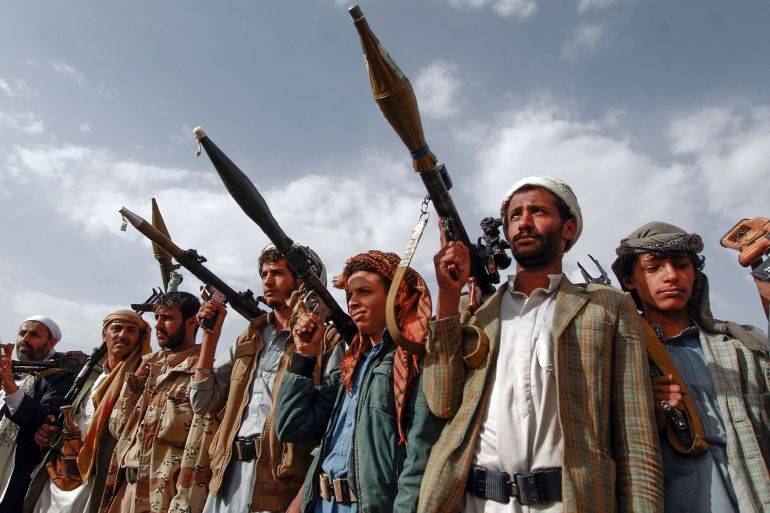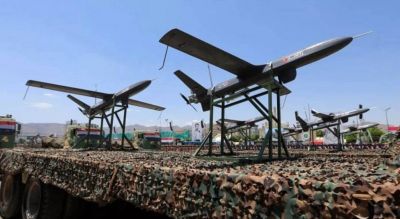
Houthi soldiers in Sanaa, Yemen in 2014. (Credit: Mohammed Huwais/AFP/File photo)
BEIRUT — Thirteen individuals and organizations based in Lebanon are among those facing fresh sanctions imposed by the US Treasury's Office of Foreign Assets Control (OFAC).
The targets of the sanctions are allegedly involved in the transfer of significant amounts of foreign currency from Iranian commodity sales — reportedly linked to the Islamic Revolutionary Guard Corps-Qods Force (IRGC-QF) — to Yemen's Houthis.
The purpose of the sanctions is to disrupt Iranian funds supporting militant activities in the region, the US Department of the Treasury said in a Thursday statement.
Last Wednesday, a drone launched from Yemen by the Iran-allied Houthis was shot down by a US military vessel sailing in the southern Red Sea. Since the start of the Israel-Hamas war on Oct.7, Yemen’s Houthis have launched several drone and missile attacks on Israel.
“The Yemeni armed forces will continue their military operations until the end of the Israeli aggression against the Palestinian people in Gaza and the West Bank,” threatened Yahya Sarea, spokesman of the Houthis’ military wing on Nov. 22.
Lebanon-based Hodroj Exchange S.A.R.L. — a currency exchange service — and its associated individual, Bilal Hudroj, are among those singled out for their alleged roles in facilitating financial transfers that benefit the Houthi movement and IRGC-QF.
"The Treasury's move aims to dismantle this financial network channeling Iranian funds to Yemeni militant groups through entities in Lebanon," the US Treasury said.
Additionally, individuals and entities connected to Fadi Deniz, an alleged illicit shipping agent, are also facing sanctions "for their purported involvement in organizing shipments in support of Sa’id al-Jamal's network. Deniz, maintaining businesses in multiple countries including Lebanon, has been targeted for facilitating transactions benefiting this network allegedly funneling Iranian funds to Yemeni militants."
"The sanctions ... reflect the US government's commitment to disrupting financial channels fostering conflicts and instability in the region. By targeting entities and individuals involved in these financial transactions, the Treasury seeks to restrict the flow of Iranian funds to militant factions, potentially contributing to de-escalation and stability in the region," the Treasury statement said.
On Aug. 10, the United States government made headlines in Lebanon by sanctioning former central bank governor Riad Salameh, his brother, son, assistant, and partner for corruption and undermining the rule of law in Lebanon.
Just six days later, the US sanctioned Green Without Borders and its director Zuhair Nahla, claiming that the self-described environmental NGO works in service of Hezbollah, which the US considers a terrorist organization.
According to a L'Orient Today analysis US sanctions in Lebanon have reached a 20-year high.

